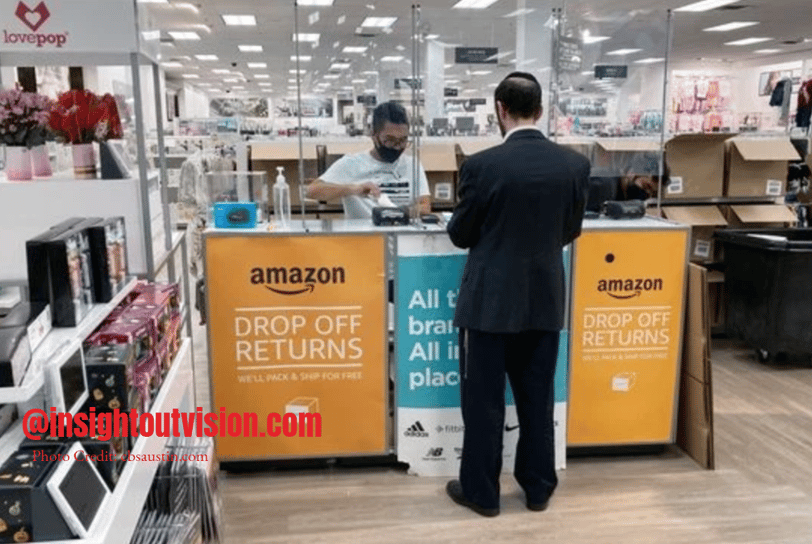Business & Economy: Retail Sales Slump as Tariffs Bite: Tariffs Tank Retail: Is Trump’s Trade War Hurting More Than Helping?
5/19/20252 min read


Business & Economy: Retail Sales Slump as Tariffs Bite: Tariffs Tank Retail: Is Trump’s Trade War Hurting More Than Helping?
Category: News | Sub-category: Business & Economy | InsightOutVision.com
Intro: A Retail Reality Check
U.S. retail sales growth slowed sharply in April 2025, signaling trouble for the economy as President Trump’s tariffs dampen consumer demand, per Reuters. After a brief surge from households stockpiling goods like cars before tariffs hit, spending has faltered, with retailers like Walmart warning of price hikes. Is Trump’s trade strategy backfiring, or is this a temporary dip? Let’s break down the data and what it means for businesses and shoppers.
The Numbers: A Spending Slowdown
Retail sales grew just 1.4% in March 2025, down from earlier highs, as consumers pulled back after front-loading purchases to beat tariffs, per Reuters. The economy contracted 0.3% in Q1 2025—the first decline in three years—driven by tariff uncertainty. Wholesale prices for services like airline tickets and hotel rooms fell, signaling weaker demand, while producer prices for goods rose, squeezing retail margins.
Walmart’s May 15 warning of price hikes on electronics, toys, and produce underscores the trend. Other retailers, including Target and Amazon, are following suit, with Amazon’s stock down 2.4% amid tariff fears. The Nasdaq and S&P 500 have slumped 15% and 10% this year, reflecting investor jitters.
Tariffs: The Culprit
Trump’s April tariffs—145% on Chinese goods (now 30% for 90 days), 25% on steel, and 10% on other imports—have disrupted supply chains. Flexport reported a 60% drop in U.S.-China container bookings as retailers stockpile goods. Walmart CEO Doug McMillon said tariffs are “too high” to absorb, forcing price hikes on items like bananas and TVs.
The 90-day U.S.-China tariff truce, announced May 12, eased some pressure, boosting stocks temporarily, per Reuters. But economists warn that even modest tariffs hurt low-margin Chinese exports, impacting U.S. retailers and consumers.
Business and Consumer Impact
The slowdown hits hard:
Retailers: Thin margins mean retailers can’t absorb tariff costs, leading to price hikes or reduced hiring. Walmart maintained its 3-4% sales forecast but saw weaker Q1 transaction growth.
Consumers: Higher prices for essentials like groceries could strain budgets, especially for low-income households. Consumer confidence is faltering, per an Economist/YouGov poll.
Jobs: Slower spending could curb retail job growth, with small businesses most vulnerable.
Federal Reserve Chair Jerome Powell warned on May 15 that tariffs risk stagflation—rising prices with slowing growth—keeping rates at 4.25%–4.5%.
Skeptical Take: A Blip or a Trend?
Some argue the slowdown is temporary. Treasury Secretary Scott Bessent called tariff impacts a “one-time adjustment,” and falling gas prices could ease consumer pain. X posts from@zerohedge cite declining bond yields as evidence of cooling inflation fears. But the Q1 contraction and retail pullback suggest deeper issues, with historical parallels like the 1930 Smoot-Hawley tariffs looming.
What’s Next?
The tariff truce expires in August, and failed negotiations could spike costs further. Retailers are diversifying sourcing to countries like Vietnam, but global trade remains shaky. The Fed’s cautious stance suggests a rocky road ahead for businesses and consumers.
Conclusion: A Costly Trade-Off
Trump’s tariffs aimed to boost U.S. jobs but are hitting retailers and shoppers hard. With retail sales slowing and prices rising, the economy faces a precarious moment. While a tariff truce offers hope, the long-term impact depends on global negotiations and consumer resilience. For now, Americans must brace for tighter budgets and an uncertain recovery.
Thought Questions:
Are Trump’s tariffs worth the economic pain if they create U.S. jobs?
How might retail price hikes affect your spending habits?
Could the tariff truce stabilize the economy, or is stagflation inevitable?
Explore deep insights on current events and growth.
Vision
Truth
hello@insightoutvision.com
+1-2236036419
© 2025. All rights reserved.
